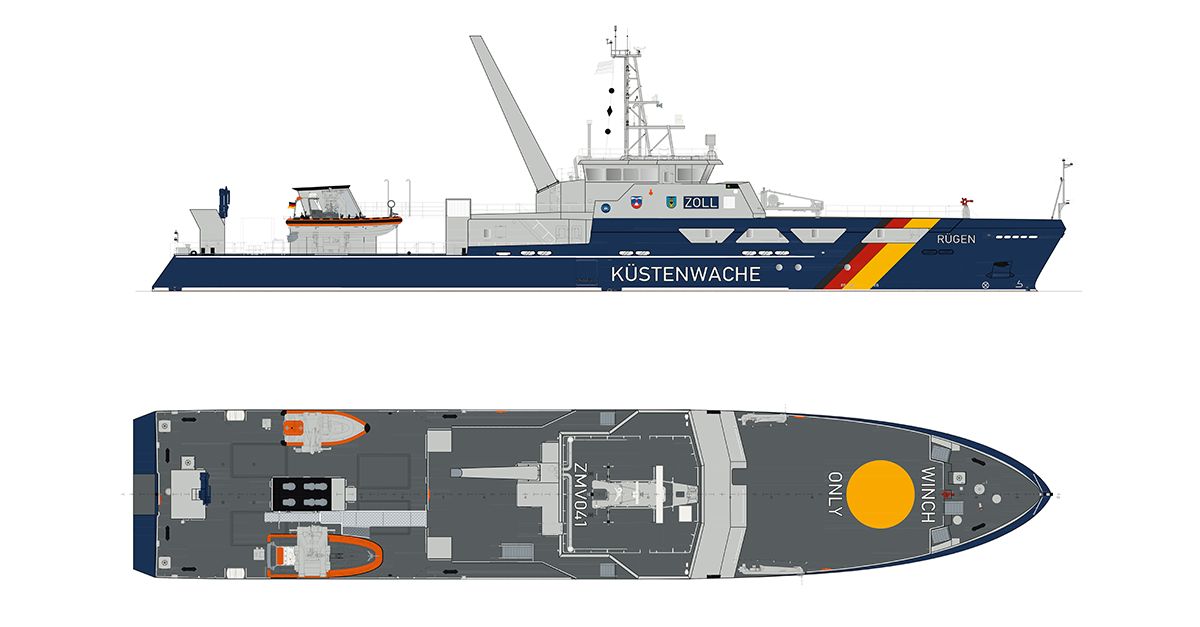German shipbuilder Fassmer is building a multi-purpose LNG-powered vessel for the German customs authority.
Fassmer revealed the contract in a recent social media post saying that the vessel will be the largest in the fleet of the Central Customs Authority (Generalzolldirektion).
The authority is part of the German Coast Guard (Küstenwache).
Fassmer said the vessel will be 67 meters long offering sufficient space for crew and equipment, which enhances its ability to operate at sea for several weeks.
Equipped with an LNG propulsion system, the vessel will reach a speed of over 23 knots, supported by its four mtu main engines totaling 7500 kW and two mtu auxiliary gensets, it said.
Fassmer said it plans to deliver the vessel at the end of 2024.
The shipbuilder did not reveal further details regarding the order or where the vessel would work.
LNG Prime invited Fassmer to provide more information but we did not receive a reply by the time this article was published.
German LNG imports
According to the image posted by Fassmer, the vessel may be named “Rügen” and work in the region around the German island in the Baltic Sea.
LNG terminal operator Deutsche ReGas recently received the first LNG tanker at its FSRU-based LNG import facility in Germany’s port of Mukran on the island of Rügen as part of the commissioning phase.
Deutsche ReGas officially launched its Lubmin FSRU-based LNG import terminal, first private LNG terminal in Germany, in January last year.
It plans to move this FSRU, Neptune, to Mukran later this year to join Energos Power.
Besides this facility, Germany currently imports LNG via the Deutsche Energy Terminal-operated FSRU-based LNG terminals in Wilhelmshaven and Brunsbüttel.
DET is also starting up its FSRU-based terminal in Stade and plans to start commissioning the second Wilhelmshaven terminal later this year.

